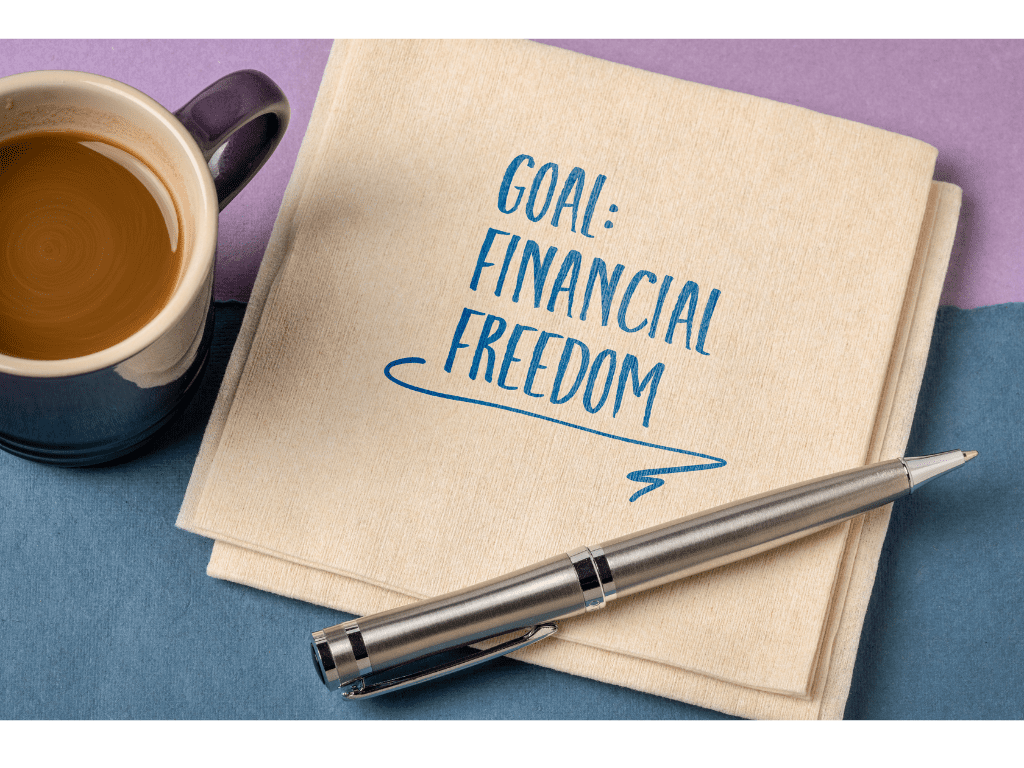For many Americans, your 40s can be a busy time in life. Not only are you halfway to retirement, but you’re also entering a timeframe in your career when your earnings reach a peak. Your life might also have quite a few additional expenses than when you were in your 20s and 30s.
Even though you might have a good start on building wealth, now is the time to solidify your plans to accomplish all your financial goals.
Keep reading as we explore how to build wealth in your 40s so you can secure a comfortable financial future.
How to Build Wealth in Your 40s
Here are ten ways to build wealth in your 40s. These can be implemented today to ensure you’re on the best path forward.
Create a Budget and Become Debt Free
According to a recent report from Credit.com, nearly 30% of Americans don’t use a budget. For most of them, it’s because they don’t feel they need one or don’t believe they’ll stick to it.
Unfortunately, this is the wrong mindset to have. Having a budget is the best way to ensure your spending is in check and you’re in a position to build wealth.
If you carry high-interest credit card debt or personal loans, having a budget will allow you to reduce your spending and become debt-free faster.

Create an Emergency Fund
Unexpected expenses will happen, usually at the most inopportune times. An emergency fund will allow you to pay for these expenses without racketing up credit card bills.
Most experts recommend an emergency fund covering three to six months’ expenses. If you’re self-employed or have a small business, consider increasing the size of your emergency fund to account for potential fluctuations in income.
Ideally, this money will be stored so you can get to it when needed, but someplace that’s not too accessible. Most people choose an online high-yield savings account where they can earn interest on the money.
Max Out Your Retirement Contributions
By the time you’re in your 40s, your retirement accounts should have approximately three times your annual salary. That means if you’re making $100,000, all your accounts should be worth around $300,000.
If you’re in good shape, congratulations. Just make sure you keep going on the path you’re on. However, if you’re coming up short, there are simple steps you can take to save money faster.
If your employer offers a 401(k), this is a great place to start. Many will match contributions up to a certain percentage or amount. Make sure you’re taking advantage of this, as it is essentially free money.
By looking at your budget, you can determine how much you can contribute each month for your retirement savings. Remember that in 2024, you can contribute up to $23,000 to a 401(k) and $7,000 to an IRA. The more you save in each retirement account today, the longer the money will earn compounding interest.
Invest in Non-Retirement Accounts
Even though retirement planning is important, building wealth requires a broader, diversified investment portfolio. Most individuals in their early working years focus on high-growth stocks and riskier investments. While these have high reward potential, they also come with more risk.
As you age, your risk tolerance changes. While time was once on your side to take on the extra risk, that benefit is nearly gone. Your investment accounts should include assets that provide added diversification, such as dividend or low-volatility stocks and index funds.
To help you with these investment strategies, make sure you’re using Ziggma’s free stock screener. This is a great way to locate potential investments that fit your criteria. You can then use a portfolio tracker to ensure you reach your financial goals.
Make Extra Mortgage Payments
According to the National Association of Realtors (NAR), the average age for a first-time homebuyer is 36. That means many people have become homeowners by the time they hit their 40s. While mortgage debt is considered by many to be good debt, paying it off as soon as possible can be a great goal to have.
If you have room in your budget, already have an emergency fund, and you’re investing each month, consider making extra principal payments on your mortgage. This will allow you to work toward eliminating your housing payment by retirement.
Life Insurance
If you don’t already have a life insurance policy, then this is something you need to consider today. Term life policies are relatively inexpensive but can provide huge benefits if needed.
At this stage in your life, you may be married or have kids. If so, life insurance will give them financial stability if something happens to you. It will help pay for funeral expenses, replace your salary, and allow your family to continue making mortgage payments on the home.

Create an Estate Plan
As your financial situation continues to progress, it will be important that you plan for the future beyond having life insurance. You’ll want to ensure you can protect and pass on your wealth to your loved ones.
This is a great time to talk with a financial advisor to ensure you have a solid financial plan. Discuss your estate plans with them and have them help you draft a will.
Consider Downsizing Your Home
If you purchased a home early in your career, you’ve likely paid off a significant portion of your mortgage. This could be a great time to consider downsizing. By using the equity you’ve built in your current home, downsizing could help you eliminate your housing payments sooner.
Start Building Additional Income Streams
Have you ever heard the phrase that the average millionaire has seven different streams of income?
The best way to create additional wealth in your 40s is to build different income streams beyond your day job. If your investment portfolio is large enough, your dividends could be considered an income stream.
To get started, think about things you’re passionate about. Is there a chance to make money from them?
Real estate investing is a popular avenue that many people take. You could purchase single-family homes or take things further and create even more revenue through multi-family units. Real estate will is also a great way to start creating generational wealth since these investments can be passed down to your kids.
Hire a Financial Professional
We’ve already discussed hiring a financial advisor to help you with an estate plan. However, the help they can provide extends further. As you progress in life, it is important to ensure that your wealth-building journey is always headed down the right path.
Hiring a financial professional can help you locate gaps in your retirement plans, diversify your investment account more effectively, and save money by recommending less expensive investments.
Just be careful where you look for your investment advice. Always hire a fiduciary. That way, you can rest easier knowing they have your best interests at heart.
What Should Your Net Worth at Age 40 Be?
According to the Federal Reserve, the median net worth of someone between the ages of 35 and 44 is $135,600. The average net worth is $549,600. For someone from 45 to 54, the median net worth increases to $247,200, with an average of $975,800. Many economists suggest following the median because this will represent a broader range of people.
This leads to the question, what should your net worth be at age 40? The answer isn’t very clear-cut. While one number might make one person feel financially stable, another person may need an entirely different amount of money to feel like they’re on the right path.
However, if you ask most financial professionals, you should have a net worth between two and four times your annual salary in this life stage.
